Car ECM: Engine Control Modules Explained
Table of Content
Introduction

The car engine control module (ECM) is a critical component in modern vehicles, acting as the brain that manages engine performance and efficiency. It processes data from various sensors and control units, ensuring optimal engine operation by regulating factors such as fuel injection, ignition timing, and emissions control.
Modern ECMs are equipped with advanced algorithms that allow for real-time adjustments based on driving conditions, enhancing both performance and fuel economy. This level of control is essential for meeting increasingly stringent environmental regulations and consumer expectations for efficiency.
For instance, vehicles equipped with ECMs often benefit from improved throttle response and reduced emissions, making the car engine control module a vital asset in today’s automotive landscape.
What is a Car Engine Control Module (ECM)?
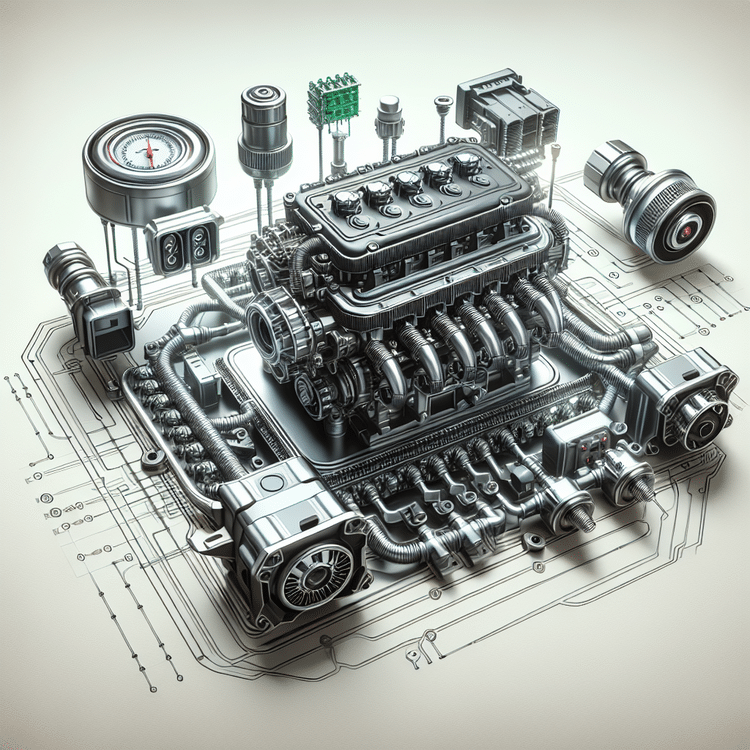
The Car Engine Control Module (ECM) is a crucial component in modern vehicles, serving as the brain of the engine management system. It is responsible for monitoring and controlling various functions to ensure optimal engine performance and efficiency. The ECM collects data from sensors throughout the vehicle, such as those measuring airflow, temperature, and fuel levels. Based on this information, it adjusts engine parameters including fuel injection timing, air-fuel mixture, and ignition timing.
One of the primary functions of the car ECM is to maintain emissions standards by managing the vehicle’s exhaust systems. This helps to minimize harmful emissions while maximizing fuel efficiency. Additionally, the ECM plays a vital role in diagnostics, storing error codes that can be accessed during servicing to identify any malfunctions.
The ECM interacts seamlessly with other systems in the vehicle, such as the transmission control module (TCM) and various sensors for safety and performance. This integration ensures that the vehicle operates smoothly under various driving conditions. For a more in-depth understanding of advanced ECM programming techniques, consider checking out our comprehensive guide on How to Perform ECU Reprogramming with wiTECH Micropod II.
Function of Car ECM
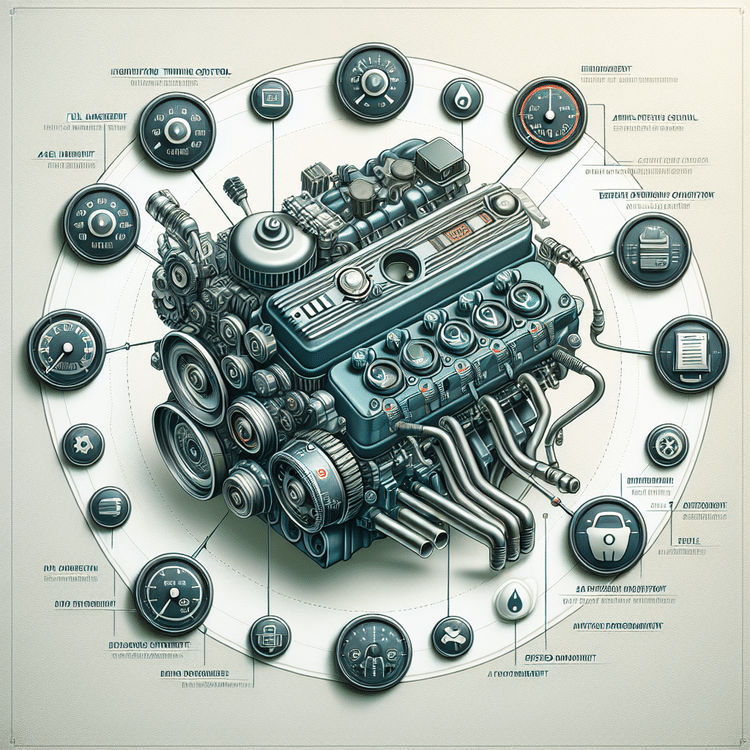
The Engine Control Module (ECM) plays a pivotal role in modern vehicles by managing various engine functions to ensure optimal performance and efficiency. Here are the key functions performed by the ECM:
- Fuel Management: The ECM determines the precise amount of fuel to inject into the engine to maintain a balance between performance and fuel economy.
- Ignition Timing Control: It adjusts the timing of the ignition spark to ensure efficient combustion, which can significantly affect engine power output.
- Air-Fuel Ratio Regulation: By monitoring the ratio of air to fuel, the ECM ensures that the engine operates under optimum conditions, reducing emissions and enhancing power.
- Emissions Control: The ECM manages systems that reduce engine emissions, helping to ensure compliance with environmental regulations.
- Engine Performance Optimization: By constantly analyzing data from various sensors, the ECM adjusts settings to improve engine responsiveness and performance.
- Idle Speed Management: The ECM regulates idle speed during stops or when the vehicle is not in motion, improving fuel efficiency and reducing emissions.
These functions not only enhance vehicle performance but also contribute to a smoother and more efficient driving experience. Proper functioning of the ECM is crucial for maintaining optimal vehicle operations.
ECM vs PCM: Understanding the Difference

The terms Engine Control Module (ECM) and Powertrain Control Module (PCM) are often used interchangeably, but they refer to different components in a vehicle’s electronics system. While both modules play crucial roles in managing engine performance, their functions and applications differ significantly.
- Engine Control Module (ECM)
- The ECM specifically focuses on controlling various aspects of the engine, including fuel management, ignition timing, and emissions control. It processes data from various sensors and adjusts engine parameters to optimize performance and fuel efficiency.
- Powertrain Control Module (PCM)
- The PCM, on the other hand, combines the functions of the ECM with those of the Transmission Control Module (TCM). It governs both the engine and transmission’s performance, ensuring that the powertrain operates smoothly and efficiently by coordinating shifts and optimizing engine output.
In summary, while the ECM is dedicated solely to engine management, the PCM oversees broader powertrain functionality. Understanding this distinction can help car owners and mechanics make informed decisions regarding vehicle diagnostics and repairs.
Signs of a Bad ECM

A failing Engine Control Module (ECM) can manifest in various ways, posing significant challenges for car owners. Recognizing the signs of a bad ECM is crucial for timely diagnosis and repair. Here are some common indicators:
- Engine Misfires: If you experience unexpected engine misfires, it may indicate that the ECM is failing to properly manage the fuel-air mixture or ignition timing.
- Poor Fuel Economy: A malfunctioning ECM can disrupt the vehicle’s fuel management system, leading to decreased fuel efficiency. If you find yourself filling up more often, it might be a sign of an underlying ECM issue.
- Difficulty Starting the Vehicle: Trouble starting your car or delayed ignition can point to issues with the ECM, which is responsible for controlling spark timing and fuel delivery.
- Check Engine Light Activation: The ubiquitous check engine light on your dashboard can be triggered by ECM problems. If it illuminates frequently or remains on, it’s wise to investigate further.
To recognize these symptoms, keep an eye on your vehicle’s performance and be proactive. If you encounter any of these signs, consider consulting a professional to explore ECM diagnostics.
For more on car sensors and their importance, check out our post on Crankshaft Position Sensor Testing: Easy Steps & Tips.
Additionally, understanding your car’s functions can greatly benefit from checking our guide on Mastering EGR: Guide to Systems & Maintenance
Car ECM Troubleshooting
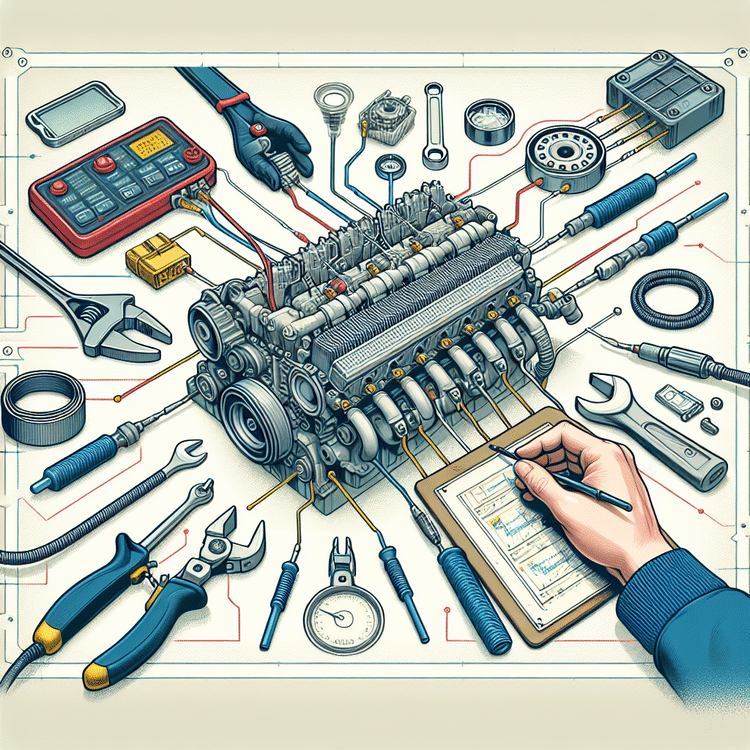
Troubleshooting your car’s Engine Control Module (ECM) can save you time and money on repairs. Here is a step-by-step guide to help you diagnose common ECM-related problems:
- Check for Diagnostic Trouble Codes (DTCs): Use an OBD-II scanner to read any trouble codes from the ECM. This will provide insight into what specific issues the car is experiencing.
- Inspect Wiring and Connectors: Examine the wiring harness that connects to the ECM. Look for any signs of wear, corrosion, or loose connections that could affect performance.
- Perform Visual Inspection: Check for any obvious mechanical issues, such as vacuum leaks or damaged components that could be mimicking ECM problems.
- Test Power and Ground Circuits: Ensure that the ECM is receiving proper power and ground connections. Use a multimeter for accurate readings.
- Update ECM Software: Sometimes, updating the ECM software can resolve glitches. Refer to guides like How to Perform ECU Reprogramming with wiTECH Micropod II for detailed instructions.
- Conduct Functional Tests: Perform various functional tests, such as checking the operation of fuel injectors, ignition coils, and other engine management components.
If issues persist after these steps, consult a professional or consider using specialized tools to assist with diagnostics. Additional resources can be found in the Ford Diagnostic Software: How to Find the Right Solution article.
How to Reset Car ECM
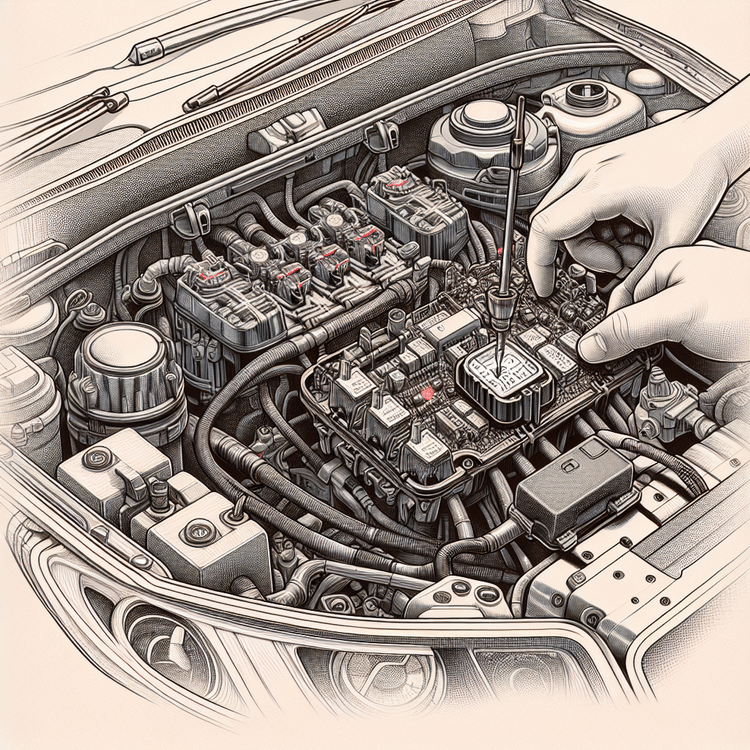
Resetting the Engine Control Module (ECM) can be necessary under various circumstances, such as after replacing a battery, performing engine repairs, or when the vehicle exhibits unusual performance issues. Here’s how to reset your car’s ECM safely:
- Disconnect the Battery: Start by disconnecting the negative terminal of the battery for at least 15 minutes. This will help to reset the ECM by clearing its memory.
- Reconnect the Battery: After waiting, reconnect the negative terminal and ensure it’s secure.
- Start the Engine: Turn on your vehicle and let it run for a few minutes. This allows the ECM to reinitialize and adjust to the current operational parameters.
- Check for Diagnostic Codes: If your vehicle was experiencing issues, use an OBD-II scanner to check for any persistent diagnostic codes and troubleshoot accordingly.
A reset is usually recommended if you notice performance issues or after servicing. However, it can also lead to the loss of learned values, such as fuel trims, which might require you to drive the vehicle for a while to allow the ECM to relearn optimal performance settings.
ECM Diagnostic Tools
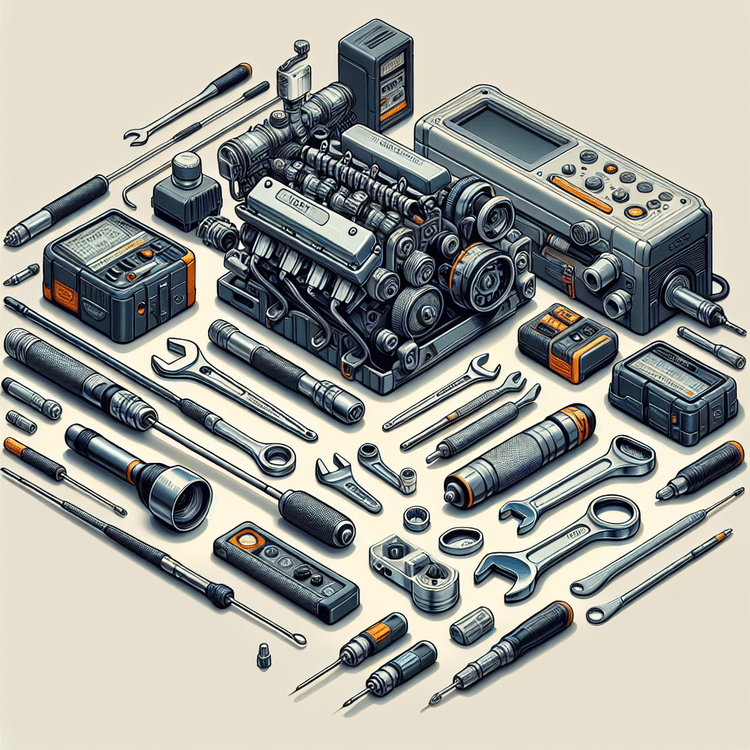
The right ECM diagnostic tools are crucial for both professional mechanics and DIY car enthusiasts. These tools enhance troubleshooting by providing real-time data about the engine control module, helping to identify and resolve issues efficiently.
Some essential tools for ECM diagnostics include:
- OBD-II Scanners: These devices connect to the vehicle’s onboard diagnostics system and read trouble codes, allowing for the quick identification of issues.
- Multimeters: Handy for checking electrical connections, multimeters can help diagnose problems in the wiring of the ECM.
- Diagnostic Software: Computer-based software solutions can provide in-depth analysis and programming options for various vehicle models.
For professionals, tools like the GM Diagnostic Tools offer extensive functionalities, whereas DIY enthusiasts might prefer simpler devices to get started. Utilizing these automotive diagnostic tools can greatly enhance the repair process, saving time and costs while ensuring vehicle performance is restored to optimal levels.
Car ECM Programming

The ECM programming process involves updating or modifying the software within the Engine Control Module (ECM) to enhance vehicle performance, improve fuel efficiency, and address specific operational issues. This process is crucial for ensuring that the vehicle’s engine operates at its optimal level, allowing the computer to manage engine functions effectively.
Improper car ECM programming can lead to various issues including decreased engine performance, increased emissions, and even complete engine failure. If the ECM is not programmed correctly, it may not interpret data from sensors accurately, which can result in poor fuel management and other malfunctions.
For car owners, understanding the significance of proper ECM programming can prevent costly repairs and improve overall vehicle reliability. For mechanics, staying updated on the latest programming techniques and tools is essential for delivering quality service.
Additionally, consider investing in quality tools for programming, like the ECU Open Cover/Shell Dismantling Assist Tool ECU Programming Tools, to facilitate your programming tasks effectively.
ECM Replacement Cost
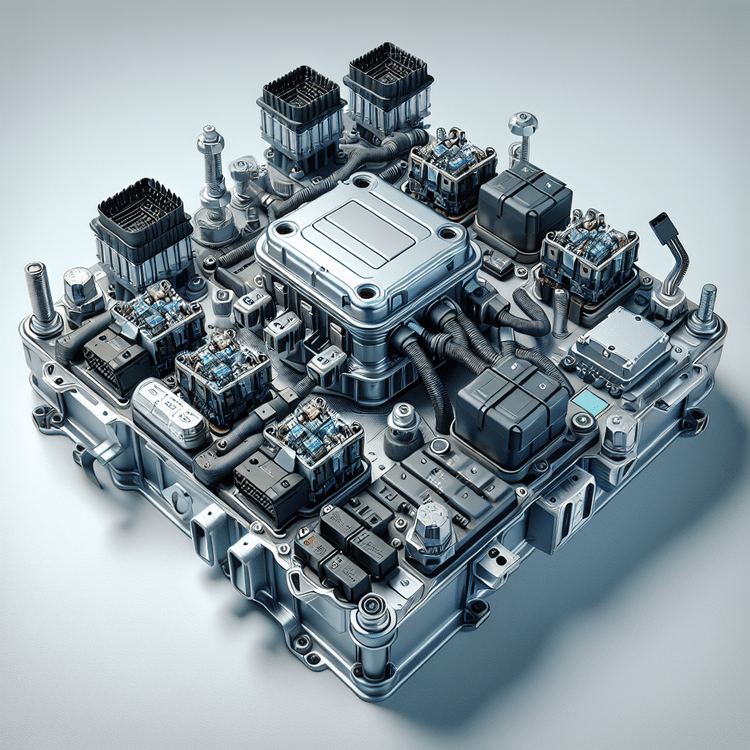
The cost of replacing an Engine Control Module (ECM) can vary significantly based on several factors, including the make and model of the vehicle, labor costs in your area, and whether you opt for an Original Equipment Manufacturer (OEM) part or an aftermarket replacement.
On average, ECM replacement costs can range from $300 to $1,500. Labor charges may add another $100 to $200, depending on the complexity of the installation process.
- OEM vs Aftermarket: OEM modules are designed specifically for your vehicle and often come with a warranty, making them more reliable but also more expensive. Aftermarket parts, while cheaper, can vary in quality and compatibility.
- Programming Requirements: Some ECMs need to be programmed to your specific vehicle, which can incur additional charges, usually around $100 to $200.
- Diagnostic Tests: Before replacing an ECM, diagnostic testing is essential to confirm that the ECM is faulty. The diagnostic cost can be an additional $75 to $150.
Additionally, if you are looking for high-quality diagnostic tools for your vehicle, check out the GM MDI 2 Multiple Diagnostic Interface for GM Vehicles that offers comprehensive diagnostics and programming capabilities.
Conclusion

The car engine control module (ECM) is a critical component of modern vehicles, managing various engine functions to optimize performance, fuel efficiency, and emissions. It is essential for diagnosing engine issues and ensuring that your vehicle runs smoothly. Regular maintenance of the ECM is vital, and any problems should be addressed by professionals.
If you’re encountering ECM-related issues, consulting experienced mechanics can save you time and money. Additionally, consider the following products from Techroute66 that may assist in resolving ECM problems:
- [4pcs/lot] ECU Open Cover/Shell Dismantling Assist Tool – Ideal for ECU programming tasks.
- How to Perform ECU Reprogramming with wiTECH Micropod II – A comprehensive guide for reprogramming your vehicle’s ECU.
Always ensure that you have the right tools and information at hand to tackle ECM issues effectively.
